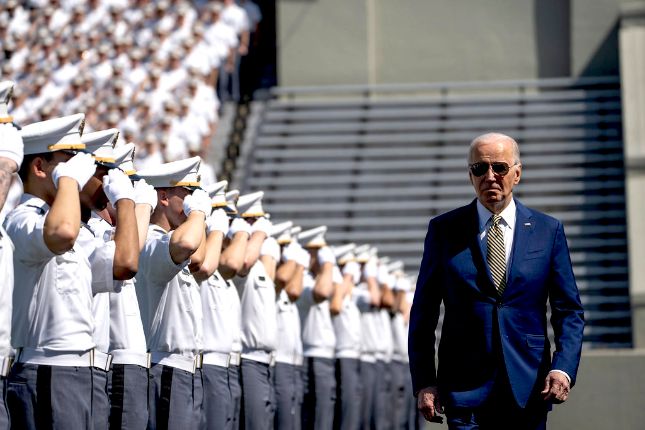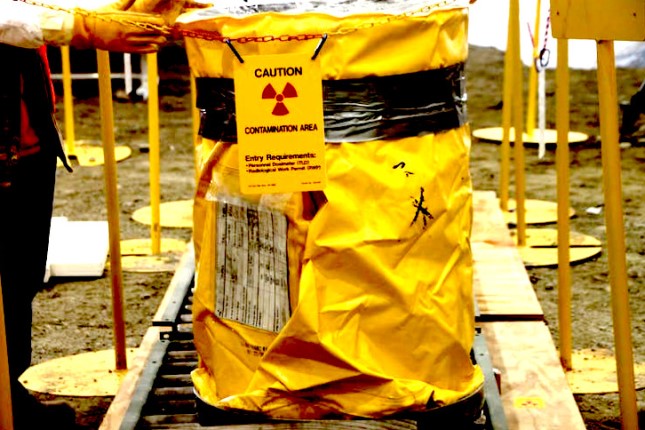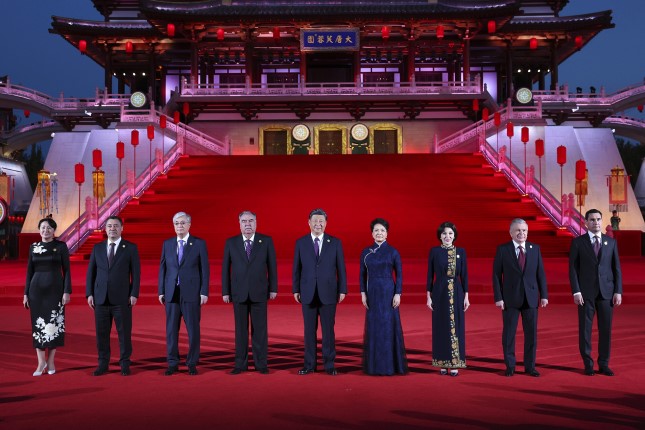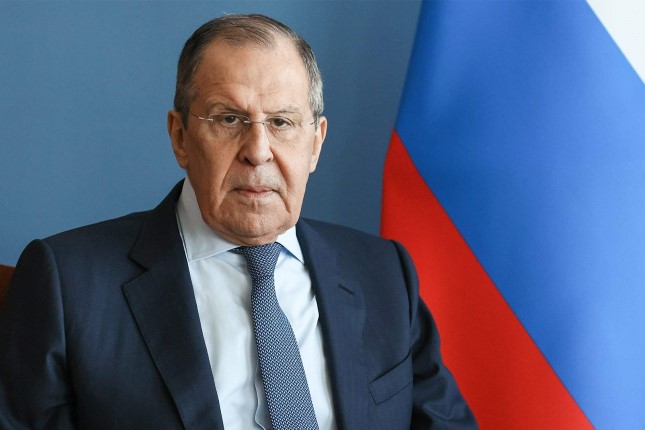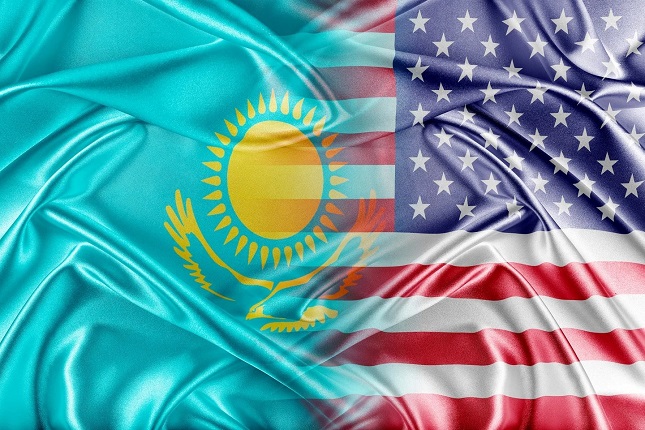With the Nashville mass shooting and other long-seated ills of democracy still haunting Americans, US President Joe Biden eagerly opened the second controversial "Summit for Democracy" on Wednesday to incite confrontations, and peddle its false narrative of "democracy versus authoritarianism."
Analysts criticized the event as more like a summit for US diplomacy than for democracy, and that the US' hegemonic democracy is facing increasing discontent globally.
This year's Summit for Democracy, which is mostly virtual, has five co-hosts - the US, Costa Rica, Netherlands, South Korea and Zambia. The Biden administration has invited 120 leaders to the summit. According to the agenda released by the US Department of State, the summit includes plenary sessions on different topics about democracy, including a range of "challenges" to democracy.
During the two-day summit, the Biden administration will announce new steps to counter the abuse and misuse of technology, including a "joint commitment" with foreign partners "to counter the proliferation and misuse of commercial spyware," CNN reported.
US National Security Council strategic communications coordinator John Kirby told reporters on Tuesday that the US will be announcing a number of new initiatives over the coming days tied to the summit, including "significant additional investment in the Presidential Initiative for Democratic Renewal," which was launched at the first summit in 2021.
No matter how many fancy words the Biden administration has used to boost the summit, this event, like the first one held in 2021, has been used by the Biden administration as a tool to reaffirm the US' leadership in so-called democracy and human rights. Its ambition to pull more countries into its interest camp to contain its rivals, especially China and Russia, has been interwoven into the agenda of the event and is too obvious to hide, said analysts.
Criticism of the Biden administration's blurring criteria on who is invited continued from the first summit. For this year's summit, the US has shunned EU member Hungary and NATO member Turkey, which media interpreted as being due to criticism against their leaders. However, it invited India despite mounting criticism from the West over Indian leaders' expelling an opposition leader from parliament.
The US State Department has declined to discuss criteria for inclusion and a State Department spokesperson was cited by AFP as saying that "However, we reiterate that for the summit we aim to be inclusive and representative of a regionally and socioeconomically diverse slate of countries."
The summit of "democracy" should be called the "Summit of Diplomacy" as it is not held for democracy but for the US diplomatic needs. The criteria for invitation are not in accordance with democracy but out of the US strategic needs, Yang Xiyu, a senior research fellow at the China Institute of International Studies, told the Global Times.
The US has continued to use the summit to tarnish the image of its rivals and to maintain its hegemony, Jia Chunyang, an expert at the China Institutes of Contemporary International Relations, told the Global Times.
According to the summit agenda, Audrey Tang, "minister of digital affairs" from the island of Taiwan has been invited to join one session via video link. Tang also attended the first summit in 2021 but Tang's video was suddenly cut and replaced with audio only. Jewher Ilham, the daughter of Ilham Tohti, a Uygur sentenced to life imprisonment for splitting China, was also invited to the event to "spotlight interventions by civil society groups and figures."
US' sowing division not unity
The Summit for Democracy is in its nature meant to divide the world with ideology and to mark democracy in different ranks based on the US' standards. Biden's value-driven diplomacy to rally allies is nothing to do with democracy, but is instead an example of Cold War mentality, said analysts.
Since the first summit, the US has amplified its attempts to foist a trumped-up narrative of "democracy versus authoritarianism," which has impacted the world and incited confrontations, said Yang, noting that the US is saddled with political polarization and now it is splitting the world in the name of democracy.
China's State Council Information Office on Tuesday issued its Report on Human Rights Violations in the US in 2022, revealing that human rights legislation and justice in the US have seen an extreme retrogression, further undermining the basic rights and freedoms of the American people.
The report from China as well as an international forum on democracy held in Beijing last week has caught some US media's attention.
It is the US who is creating ideological confrontations by attempting to monopolize the definition of democracy and demonizing China and other countries' exploration of their own path to democracy. What China has done is to remove the facade of American democracy, Jia said.
Each country has the right to choose its own political systems and patterns for democracy. American democracy is never and should never be the only way, let alone its long-seated problems. It is not eligible to lecture others on democracy, said Jia.
Many former senior governmental officials, diplomats, experts and scholars from over 100 countries and regions who attended "The Second International Forum on Democracy: Shared human values" in Beijing last week also expressed opposition to a certain country's weaponizing of democracy for geopolitical purposes.
Pakistan announced on Tuesday that it will not participate in the US-led Summit for Democracy.
Mushahid Hussain Sayed, Chairman of the Pakistan Senate Defense Committee, said at the international forum that the second Summit for Democracy is not about democracy, but about weaponizing democracy and weaponizing human rights in the emerging World War against China and also against Russia.
Some countries are looking at the world with a zero-sum game mindset or cold-war mentality, an idea that will be rejected by countries from the Global South and most of the Global North, said Sayed.
Analysts noted that instead of pseudo-democracy or a summit for democracy that hypes up conflict, what the world really needs today is a conference of solidarity that focuses on taking real actions to solve prominent global challenges.
Photo: Children and a woman depart the reunification center at the Woodmont Baptist church after a school shooting on March 27, 2023, in Nashville, Tennessee. According to initial reports, three students and three adults were killed by the shooter, a 28-year-old woman. The shooter was killed by police responding to the scene © AFP.
Source: The Global Times.





















